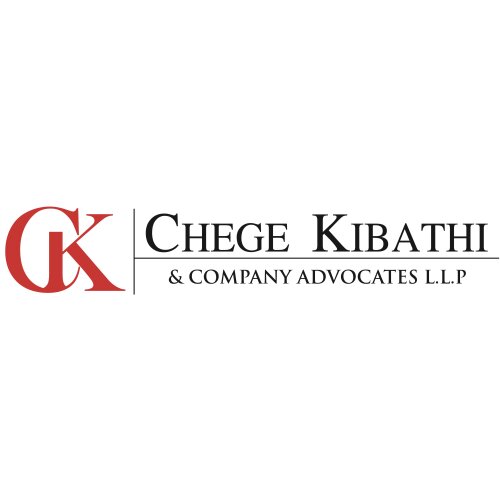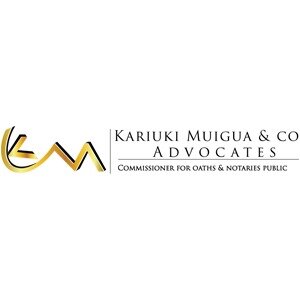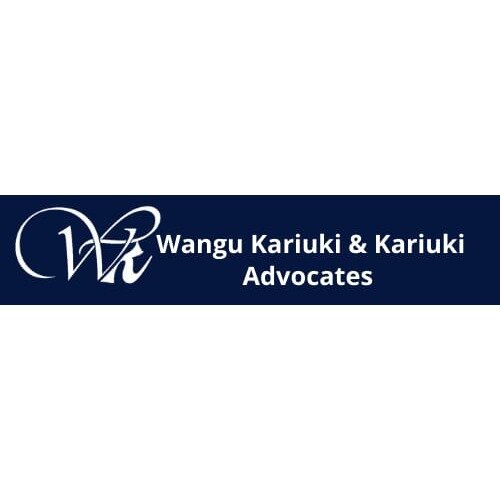Best Energy Regulatory Law Lawyers in Nairobi
Share your needs with us, get contacted by law firms.
Free. Takes 2 min.
List of the best lawyers in Nairobi, Kenya
Legal guides written by Adroit Law LLP:
- Kenya Launches Digital Nomad Visa: A Gateway for Remote Workers
- Navigating the Payment System License Maze in Kenya
- Navigating the Complexities of Mining Licenses and Permits in Kenya: A Look into Artisanal and Large-Scale Operations
About Energy Regulatory Law in Nairobi, Kenya
Energy Regulatory Law in Nairobi, Kenya governs the generation, transmission, distribution, and consumption of energy resources such as electricity, petroleum, natural gas, and renewable energy. The regulatory framework aims to ensure fair competition, protect consumer rights, promote investment, and advance sustainable energy solutions. The Energy and Petroleum Regulatory Authority (EPRA) is the principal regulator overseeing compliance with laws and standards across the energy sector. Legal professionals in this field help individuals, businesses, and organizations navigate the complexities of permits, licensing, disputes, tariffs, and energy project development.
Why You May Need a Lawyer
Several situations can arise where legal counsel in Energy Regulatory Law becomes essential:
- You are planning to invest in or develop an energy project such as a power plant or renewable energy installation
- Your business requires guidance on obtaining and complying with energy licenses or permits
- You are involved in a dispute regarding energy tariffs, service quality, or contractual obligations with an energy provider
- Your operations are affected by new energy regulations or compliance audits from authorities such as EPRA
- You are seeking to challenge regulatory decisions or understand your rights and obligations under local energy statutes
- Your company is facing enforcement action or penalties for alleged non-compliance with energy regulations
- You wish to import or export energy resources and need to comply with Kenyan law and cross-border regulations
A lawyer specializing in this area can guide you through the regulatory process, help resolve disputes, and safeguard your legal and financial interests.
Local Laws Overview
Energy Regulatory Law in Nairobi is shaped by various statutes and regulations. Key legal instruments include:
- The Energy Act, 2019, which provides a modern legal framework governing the entire energy sector including electricity, petroleum, and renewable energy resources
- The Petroleum Act, which deals with exploration, production, and distribution of petroleum products
- Regulations issued by the Energy and Petroleum Regulatory Authority (EPRA), covering licensing, tariffs, quality of service, and safety standards
- Environmental regulations relevant to energy projects, such as Environmental Impact Assessment (EIA) requirements under the National Environment Management Authority (NEMA)
- Policies promoting the use of renewable energy and energy efficiency, such as feed-in-tariffs and tax incentives
Familiarity with these laws is essential for successful compliance, project development, and dispute resolution within Nairobi's energy sector.
Frequently Asked Questions
What is the role of the Energy and Petroleum Regulatory Authority (EPRA)?
EPRA is responsible for regulating and overseeing the generation, transmission, distribution, and marketing of electricity and petroleum products in Kenya, including Nairobi. Its duties involve licensing, enforcing compliance, approving tariffs, and ensuring fair competition.
Do I need a license to generate electricity for personal use?
Small-scale generation for personal use, such as solar panels on a home, typically does not require a license. However, larger-scale and grid-connected installations do require licensing from EPRA.
What should I do if I have a complaint about my energy provider?
You should first raise the issue with your provider. If unresolved, you can escalate the complaint to EPRA, which has a consumer protection mandate, and you may seek legal assistance if the matter remains unresolved.
Are there incentives for renewable energy projects in Nairobi?
Yes, Kenya offers incentives such as feed-in-tariffs, tax exemptions for certain equipment, and prioritized licensing for renewable energy investments. Legal guidance can help you access these benefits efficiently.
What are the penalties for operating without the required energy licenses?
Operating without the necessary licenses or approvals from EPRA can lead to hefty fines, closure of operations, or even criminal liability. Legal assistance is advised if you face such allegations.
How are energy tariffs determined and can they be challenged?
EPRA sets or approves energy tariffs based on consultations with stakeholders. If you believe a tariff is unfair, you can file a formal objection or appeal, sometimes requiring legal representation.
What role does environmental law play in energy projects?
All major energy projects must comply with environmental regulations, such as conducting an Environmental Impact Assessment (EIA) as mandated by NEMA. Legal experts can guide you through this process.
Are foreign investors subject to the same energy regulations?
Yes, all investors, whether foreign or local, must comply with the Kenyan energy legal framework. However, there are often specific provisions and processes for foreign investments that a legal advisor can explain.
Can I import energy equipment without regulatory approval?
Certain energy equipment must meet standards set by the Kenya Bureau of Standards (KEBS) and may require EPRA approval. Importing non-compliant equipment can attract penalties.
How can a lawyer assist with an energy project in Nairobi?
A lawyer can help structure your project, ensure compliance, obtain the necessary permits, resolve disputes, and represent you in negotiations with regulators or other stakeholders.
Additional Resources
If you need more information or specific assistance, consider reaching out to:
- Energy and Petroleum Regulatory Authority (EPRA) for licensing and compliance information
- National Environment Management Authority (NEMA) for environmental compliance
- Kenya Power and Lighting Company (KPLC) for electricity supply issues
- Kenya Electricity Generating Company (KenGen) for generation stakeholders
- Kenya Bureau of Standards (KEBS) for equipment standards
- Local law firms specializing in Energy Law
- Industry associations such as the Kenya Renewable Energy Association (KEREA)
Next Steps
If you believe you need legal assistance in Energy Regulatory Law, take the following steps:
- Define your situation and gather all relevant documents and correspondence
- Research and shortlist legal professionals or firms in Nairobi with specialization in Energy Regulatory Law
- Schedule an initial consultation to discuss your needs and understand the potential legal pathways available
- Ensure your lawyer has experience dealing with regulators like EPRA and a strong track record in the energy sector
- Follow your lawyer's advice on compliance, dispute resolution, and future prevention of legal issues
The earlier you seek guidance, the more likely you are to avoid costly mistakes and ensure your interests are fully protected under Kenyan law.
Lawzana helps you find the best lawyers and law firms in Nairobi through a curated and pre-screened list of qualified legal professionals. Our platform offers rankings and detailed profiles of attorneys and law firms, allowing you to compare based on practice areas, including Energy Regulatory Law, experience, and client feedback.
Each profile includes a description of the firm's areas of practice, client reviews, team members and partners, year of establishment, spoken languages, office locations, contact information, social media presence, and any published articles or resources. Most firms on our platform speak English and are experienced in both local and international legal matters.
Get a quote from top-rated law firms in Nairobi, Kenya — quickly, securely, and without unnecessary hassle.
Disclaimer:
The information provided on this page is for general informational purposes only and does not constitute legal advice. While we strive to ensure the accuracy and relevance of the content, legal information may change over time, and interpretations of the law can vary. You should always consult with a qualified legal professional for advice specific to your situation.
We disclaim all liability for actions taken or not taken based on the content of this page. If you believe any information is incorrect or outdated, please contact us, and we will review and update it where appropriate.

















